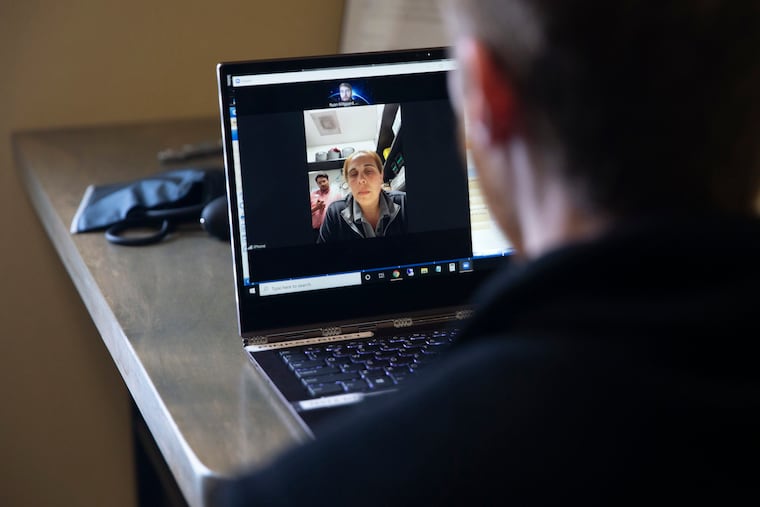How COVID-19 is changing the way doctors care for patients with Huntington’s disease | Expert Opinion
While there’s no substitute for personal contact, we were amazed to discover that telemedicine allowed our Huntington's patients to teach us skills we wouldn’t have learned had we met them in the clinic.

While the frontline battle against COVID-19 rages on in hospitals across the country, another crisis looms: Chronically ill patients whose needs can’t be met entirely by telemedicine struggle to get the care they need.
Among the patients most affected by the pandemic are those with Huntington’s disease (HD), an inherited neurodegenerative disorder for which there is no cure or therapy to slow its relentless progression. HD is managed primarily by using medications to control symptoms and by connecting patients with in-person services such as physical therapy and genetic counseling, as patients have a 50% chance of passing along the condition to their children.
While the coronavirus restrictions have made it harder for patients to get outpatient care, it also isolates medical students from developing the skills needed to become competent and compassionate physicians.
As third-year medical students, we signed up to volunteer with the Penn HD Center of Excellence while our school closed down, looking for an opportunity to work with patients by telemedicine. While there’s no substitute for personal contact, we were amazed to discover that our HD patients taught us skills we wouldn’t have learned had we met them in the clinic.
Usually, medical students are expected to see patients in less than 20 minutes and rarely see the same patient twice. This format maximizes our education; the more patients we see, the more we can learn. But it also minimizes the opportunity for deeper conversations with patients.
There were no such constraints in the HD telemedicine clinic. Our job was to call patients before their scheduled appointments to find out which symptoms were causing them the most trouble. Our conversations could last anywhere from 20 minutes to two hours. It also was clear that both patients and their caregivers felt more relaxed speaking from the comfort of their own homes. We learned about our patients’ sources of support, their hobbies, and their anxieties, and we even met the pets that kept them company in isolation.
After their appointments, we called patients back to see how they were responding to medication changes. As any medical student knows, it can feel as if you’re pestering patients when you call them at home. But in this case, our patients told us they appreciated our check-in conversations, and many came to see us as an integral part of their support networks.
One patient we helped care for had early manifestations of HD, with only minor symptoms. In person, this could have been a straightforward case: No symptoms means no medications. Call in the next patient.
But with the luxury of time, we could ask this patient how things were going with the quarantine. Not well, it turned out. A close family member — the primary source of financial support — was no longer at home. And as we talked, we realized the problems went beyond loneliness. Although receiving food stamps, the patient could not afford food to last through the month. Before this person’s appointment the next day, we spoke with a social worker who connected our patient with the necessary resources.
Caregivers — and the emotional toll they face — rarely get the attention they deserve. Another patient first came to the clinic employed and independent, and yet the HD worsened so rapidly that the person were entirely dependent on family within a few months. The caregiver had put nursing school on hold as the patient became reliant for even the simplest of tasks. Within six months after developing symptoms, the patient died from complications of HD. Death happened so suddenly that the caregiver hadn’t even adjusted to the idea that this loved one would be lost. And because the patient had died during the pandemic, there was no funeral, no comfort of the church community. When we called to check on the patient’s caregiver, our conversation lasted for more than an hour. We learned so much and, we hope, provided some comfort.
While we eagerly await the chance to return to the wards, we are grateful for an experience we once thought would have diminished our educations. Instead, the lessons we learned will carry us through our training and careers.
Kavitha Muralidharan and Ian Sigal are third-year medical students in the Perelman School of Medicine at the University of Pennsylvania. They volunteer with Penn’s HD Center of Excellence under the guidance of Pedro Gonzalez-Alegre. The opinions expressed in this article do not represent those of the University of Pennsylvania Health System or the Perelman School of Medicine.